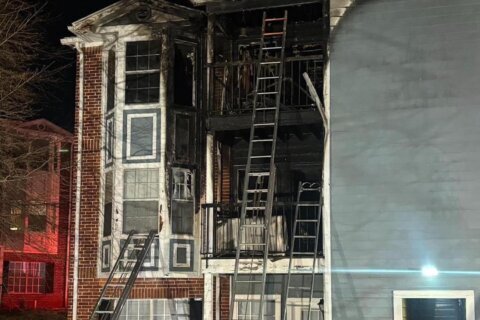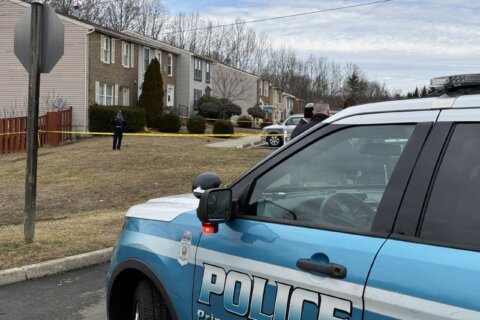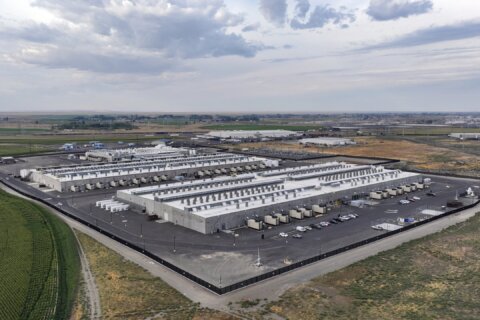This article was republished with permission from WTOP’s news partner InsideNoVa.com. Sign up for InsideNoVa.com’s free email subscription today.
This article was written by WTOP’s news partner InsideNoVa.com and republished with permission. Sign up for InsideNoVa.com’s free email subscription today.
Prince William County officials are considering new limits on public comment procedures at Board of Supervisors meetings.
During Tuesday’s meeting, board Chair Ann Wheeler outlined the initial framework she is proposing to revise public comment rules in response to meetings regularly running well past midnight.
Public comment was more limited in 2020 because of the COVID-19 pandemic but gradually became more robust throughout 2021. In 2022, public comment increased substantially, primarily driven by those supporting or opposing the controversial PW Digital Gateway data center project.
“One of the questions I get out in the community is, ‘Why can’t you run the meetings better?’ And a lot of that has to do with lengthy public comment time,” she said.
State law does not require local governments to hold public comment sessions, although legislators have periodically tried unsuccessfully to change the law.
The Board of County Supervisors meetings are typically broken into two parts — at 2 p.m. and 7:30 p.m. — with public comment allowed at both sections. Speakers are allowed three minutes each and can sign up for both sessions.
For public hearings, speakers are limited to three minutes unless they represent an organization, which allows five minutes.
Limiting speaking time
Wheeler’s proposal is to limit public comment in the afternoon and evening to one hour each and limit speakers to one public comment slot per month.
For public hearings, Wheeler recommended that once 45 people have signed up, the speaking limits are automatically reduced to two minutes per person and three minutes for organizations.
A review of board meetings by InsideNoVa found that between January 2021 and January 2023, the board has held 88 public comment sessions. They ranged from four minutes each on Oct. 5 and Oct. 12, 2021, to a long of 3 hours and 13 minutes on July 20, 2021.
In 2022, meetings regularly stretched into the morning past 2 a.m. or 3 a.m. In the fall, one meeting ended at 4:30 a.m. and another lasted until 9:47 a.m.
Wheeler said late meetings put a burden on the public and county staff.
“No one is doing their best at midnight,” she said.
In 2021, public comment was held 48 times with an average length of 43 minutes. Of those, 18 public comment sessions took less than 30 minutes and 37 lasted less than an hour. Eleven sessions lasted more than an hour, and only three were more than two hours.
In 2022, at least 41 sessions were held, and only one public comment period was less than 30 minutes and only nine were less than an hour. Thirty-one lasted more than an hour and six were more than two hours.
The average in 2022 was 1 hour and 21 minutes per public comment session, with the quickest being four minutes in the afternoon on Nov. 22.
The longest last year was in an afternoon meeting on Aug. 2: 2 hours and 46 minutes. The board had only an afternoon session planned that day so members could participate in National Night Out activities, but supervisors missed the event partly because of the length of public comment.
Combining afternoon and evening sessions since January 2021, aggregate public comment has exceeded two hours on 19 occasions, with 15 of those in 2022.
Supervisor Victor Angry, D-Neabsco, said “public comment time has been weaponized, and I don’t like it.”
“I want to hear the public’s comments,” he said during Tuesday’s meeting. “We should never have a 10 a.m. board meeting. We should never be 12 hours into this.”
Supervisor Jeanine Lawson, R-Brentsville, said the increased public comment is “a reaction to what this board is doing.”
“Whether you support it or not, the public is reacting to the measures the board is taking up,” she said. “I don’t want the public to think that it’s all their fault that we’ve had early morning board meetings.”
Lawson said she’s hesitant to limit opportunities for public input.
“I’m going to be very protective of the public’s interest. I’m not going to say I’m going to close the door on this … but I want everybody to know I will be very cautious of what we are doing to affect the public’s right to address us,” she said.
Nearby jurisdictions
Prince William is the only Northern Virginia county without limits on either the number of speakers at public comment or a cap on total time for public comment.
The county’s rules only prevent speakers from discussing an issue during public comment that is already scheduled for a public hearing that day. (A person can speak to the issue during the public hearing time but not during the public comment portion; the two slots are distinct.) The rules also prohibit “the use of obscenity or other speech tending to create a breach of the peace.”
In comparison, Fairfax County limits its public comment to 10 speakers per session, and residents can speak only once per six-month period. Speakers are barred from discussing “issues under litigation; issues that have been scheduled for public hearing before the Board; and personnel matters or comments regarding individuals.”
Loudoun County’s rules vary depending on the time of the month. At its first Tuesday meeting, public input is allowed at 6 p.m. and capped at 90 minutes. At its meeting on the third Tuesday, it allows eight speakers limited to 2½ minutes each at 5 p.m. Then, at 6 p.m., public comment is open but capped at 90 minutes.
Loudoun County supervisors approved additional rules this month to either end meetings at midnight or have two-thirds of supervisors vote to extend the meeting.
Arlington County has some of the most stringent rules in Northern Virginia. It holds public comment at 8:30 a.m. during Saturday meetings and limits speakers to two minutes. The county board allows only one speaker on “each topic, but opposing views on the same topic will be considered two different topics.”
Prince William County supervisors did not set a timeline to vote on the changes.







